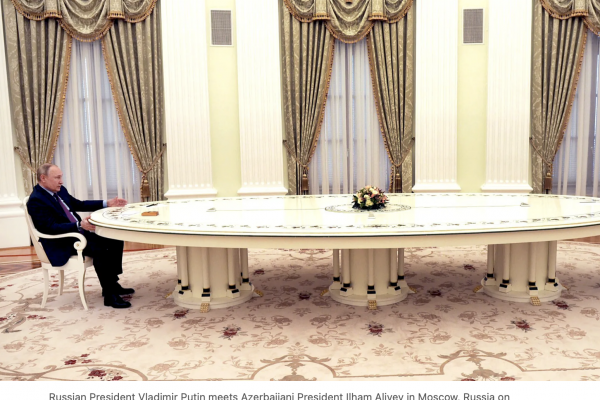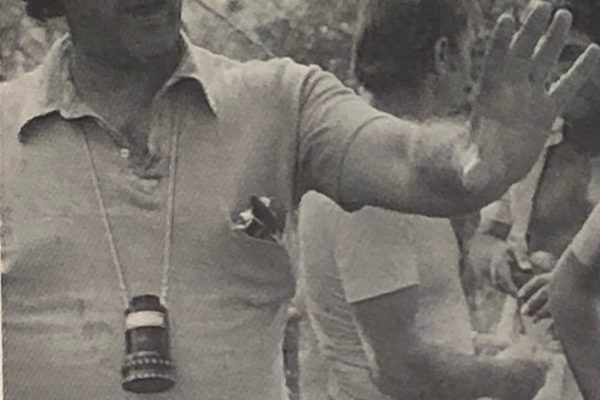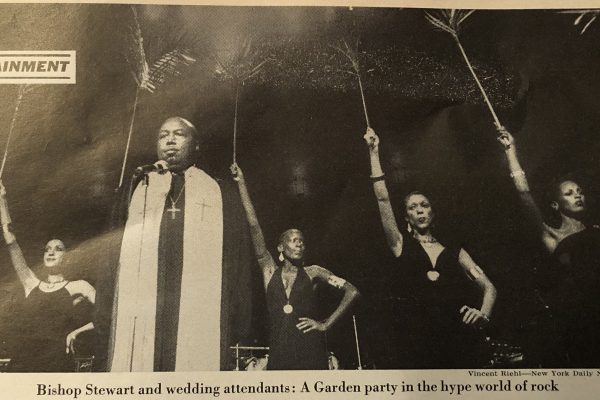Original Publication: Newsweek – September 12, 1977
By Maureen Orth with Paul Brinkley-Rogers in Los Angeles
When Jean-Luc Ponty was 3 and growing up in the small Normandy town of Avranches, his father handed him a violin and told him to go play with it. So he did, using the bow as a sword. By the time he was 5, he’d got a better handle on the instrument and taught himself “Au Clair de la Lune.” At 17, he was playing Bach, Beethoven and Paganini. He graduated with a first prize from the august Paris Conservatory and began a three-year stint with the Lamoureux Orchestra. Now, at 34, he is the leading fiddler in the world – but of rock, not Bach.
“Jazz-rock” is actually what Ponty calls his specialty – and he has won Down Beat magazine’s critics; and readers’ polls as the top jazz violinist. But the wild enthusiasm of Ponty’s sellout audiences, the driving, high-decibel intensity of his music and the sales figures of his last Atlanitic album, “Imaginary Voyage” (more than 200,000 copies), give him the aura of a rock star.
Onstage recently at the Greek Theatre in Los Angeles, Ponty whipped four electric violins – each one colored-coded so he could find it in the dim lighting – into a frenzy of familiar and unfamiliar sounds. When he began his “Imaginary Voyage” number, the small but muscular Frenchman pointed his bow skyward and motioned his band, which is trained in the classics, jazz and rock, to follow. They did – into a twenty-minute, four-part suite that rocketed from Hindemith-like passages to pure, cool jazz. In the exotic solo, “Wandering on the Milky Way,” he stepped back from one of his electric contraptions, an Echoplex, and it continued to spit out notes – leaving the audience agog. Most infectous of all was the minor-key, jazz funk hoedown, “New Country,” a hand-clapping bit of good-time bluegrass fiddling.
Curiously, it was the clarinet, not the fiddle, that brought Ponty to jazz. His father had taught him the instrument, hoping it would get him assigned to a military band if he were drafted, and Jean-Luc played on it for fun when he wasn’t practicing violin classics six hours a day. Friends introduced him to jazz in a club, and Ponty signed up to play the clarinet.
Liberation: Caught without his clarinet one night, he picked up his fiddle and jammed on it. It was a liberation. “At first I didn’t take jazz seriously,” he says. “I did it to get out of my environment of classical-music studies, to chase girls and drive sports cars. Then I learned that in its own way jazz had a discipline as strong as the classics. I had been searching for years for a way to put my ideas about music together and to be in balance with myself. With jazz I was able to listen to rock and to write music that ended the conflict within me.”
Ponty, who honed his rock style playing with Frank Zappa, John McLaughlin and Elton John, writes all of his group’s music and insists that each player approach it with the same disciplined ectasy he does. “I give them structure and above that structure the soloist is free to use his imagaination,” he explains. “Then after we practice and practice and rehearse and rehearse, I write all the notes for the instruments like classical music. And then we rehearse again very tightly like a symmphony orchestra.” His new album, “Enigmatic Ocean,” has just been released. Jazz purists are critical of his pop-flavored fusion music, but Ponty doesn’t care, and he revels in the idea that he is a genunine oddity. “Here I am,” he laughs, “this European playing a strange instrument, a classical instrument, feeling more at home with freaks.”
This article is typed from the original material. Please excuse any errors that have escaped final proofreading.



